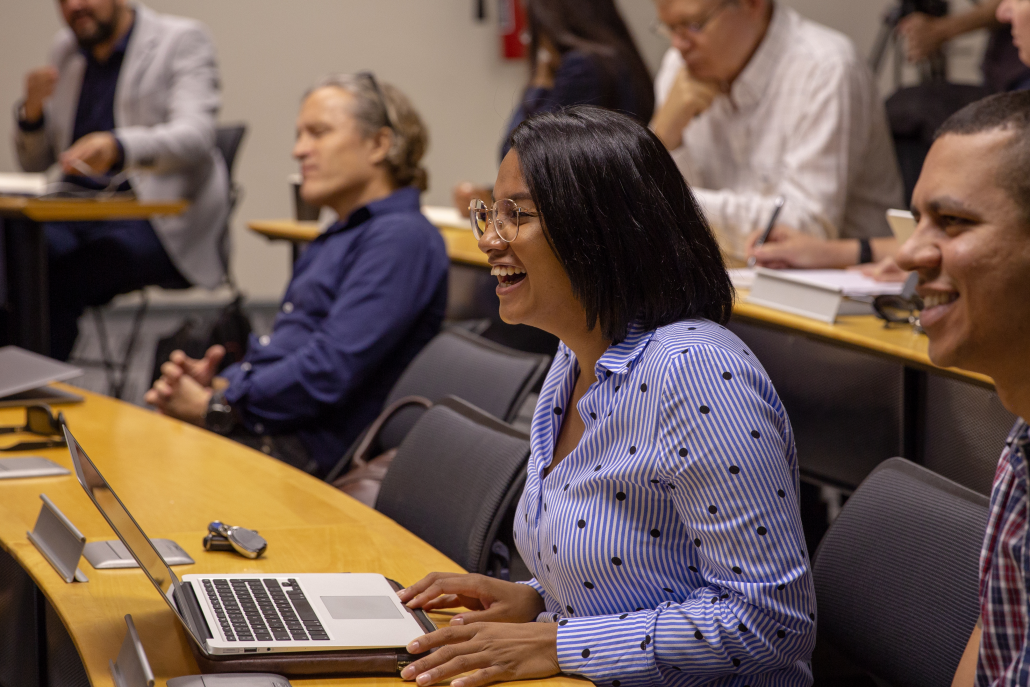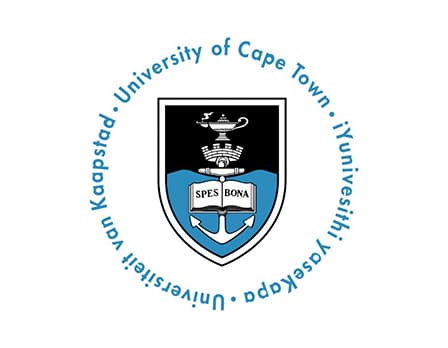Daniella Chasenski had always been curious about the business sphere but felt she needed more practical knowledge and skills to enter the industry as a professional. Eager to change that, she decided to pursue an advanced degree at the UCT Graduate School of Business (GSB). Chasenski had already completed a Bachelor of Social Science in Politics, Philosophy and Economics, as well as a Postgraduate Diploma in Management in Entrepreneurship at the University of Cape Town (UCT) so the GSB seemed like a natural progression for her.
Located in beautiful Cape Town, the UCT GSB is just as acclaimed as it is impressive. Since its establishment in 1964, the GSB has racked up a number of accolades over the years. Its Triple-Crown status places it among the top 1% of business schools worldwide, and regularly ranks among the top 100 schools that offer an MBA, according to Financial Times. Little wonder why it has already graduated over 23,000 alumni from various countries.
Today, the UCT GSB offers eight postgraduate programmes, one of which instantly caught Chasenski’s attention — the award-winning CEMS Master’s of Management specialising in International Management (CEMS MIM). Introduced in 2022, it is offered in association with CEMS — a global alliance of the world’s finest students, schools, alumni, and corporate and social partners. The UCT GSB is the only business school in Sub-Saharan Africa to offer the CEMS MiM programme.
The programme offers a solid grounding in international management practice, and students get to spend one semester at one of the CEMS network of prestigious partner schools, such as the London School of Economics, Singapore University, and Cornell. Students are also invited to do an internship at one of the CEMS corporate partner organsiations, which range from Google to Maersk, and from ABInBev to McKinsey.
“When I came across the CEMS MIM, I was excited to see subjects such as Topics in Social Innovation, Global Strategy and the Doing Business in Africa [DBIA] Block Seminar,” Chasenski says. However, what really drew her to this programme was its emphasis on bridging the gap between theory and practice. “I find this to be a much more effective way of learning. I especially appreciate the value of the practical experience we could gain during the 8-week international internship,” she says.

The Graduate School of Business first opened its doors in 1964. Source: University of Cape Town
Today, Chasenski is more than happy with her decision. Reflecting on the programme, she highlights the unique opportunities it offers students, especially those with a global philosophical perspective. Through engagements like the Solution Space Philippi Hub visits and the DBIA block seminar, she began truly appreciating the privilege of tertiary education and the chance to contribute to positive change alongside local entrepreneurs. Interacting with exchange students also underscored the richness of studying at the UCT GSB, where a holistic business education extends beyond a Eurocentric lens to encompass emerging markets and diverse perspectives.
With a keen interest in the luxury sector and a passion for business analysis and sustainability, Chasenski is currently on an exchange semester at HEC Paris and is eagerly pursuing international internships. Her experience makes it easy to understand why UCT GSB students vouch for their school.
Through student evaluations within the CEMS network, the UCT GSB was recently able to benchmark the quality and impact of its teaching against other business schools. In 2022, when it first joined the CEMS programme, its Global Citizenship Seminar got the best score out of 34 other CEMS schools. Also, their skills seminar and purpose workshop tied for first place with the University of Sydney, and their elective courses in Term 2 were ranked second along with the London School of Economics and IIMC.
Uli Brummer’s CEMS MiM experience revolved more around international friendships, learning invaluable negotiation skills, and going on unforgettable adventures — all of which led him out of his comfort zone. “CEMS pushed me in ways I didn’t expect,” he says.
At times, the programme even pushed him beyond his limits, forcing him to dig deep and reaffirm his commitment to his goals. Yet, the rewards were abundant. Through internships and thesis work, Brummer gained practical experience that laid the foundation for his career in the fruit and agricultural industry. “During the programme, I honed my skills in adaptability and resilience, which I now use daily in my role,” says the graduate. “It was definitely a game-changer.”

Table Mountain provides a dramatic backdrop to the city. Source: University of Cape Town
UCT GSB’s full-time Master of Business Administration (MBA) is equally transformative. Rooted in the African experience yet globally relevant, this programme equips learners with the skills and insights required to tackle complex challenges and drive positive change on a societal scale.
This route unlocks a wealth of benefits, including enhanced personal leadership competencies, expanded professional networks, invaluable managerial knowledge, and flexibility. Learners can choose between a one-year full-time programme or a flexible two-year modular format — both designed to accommodate their professional commitments.
And if GSB’s comprehensive programmes can’t convince you to study here, Cape Town’s natural beauty will. South Africa’s oldest city boasts not only stunning vistas but also well-established infrastructure, a cosmopolitan populace, and an unparalleled quality of life — creating an ideal environment for both learning and living. Recognised for its rich tapestry of heritage, innovation, and creative energy, Cape Town was honoured as the World Design Capital in 2014 by the World Design Organization — a testament to its unique blend of past and present.
Follow the University of Cape Town on Facebook, Instagram, LinkedIn, X, and YouTube












